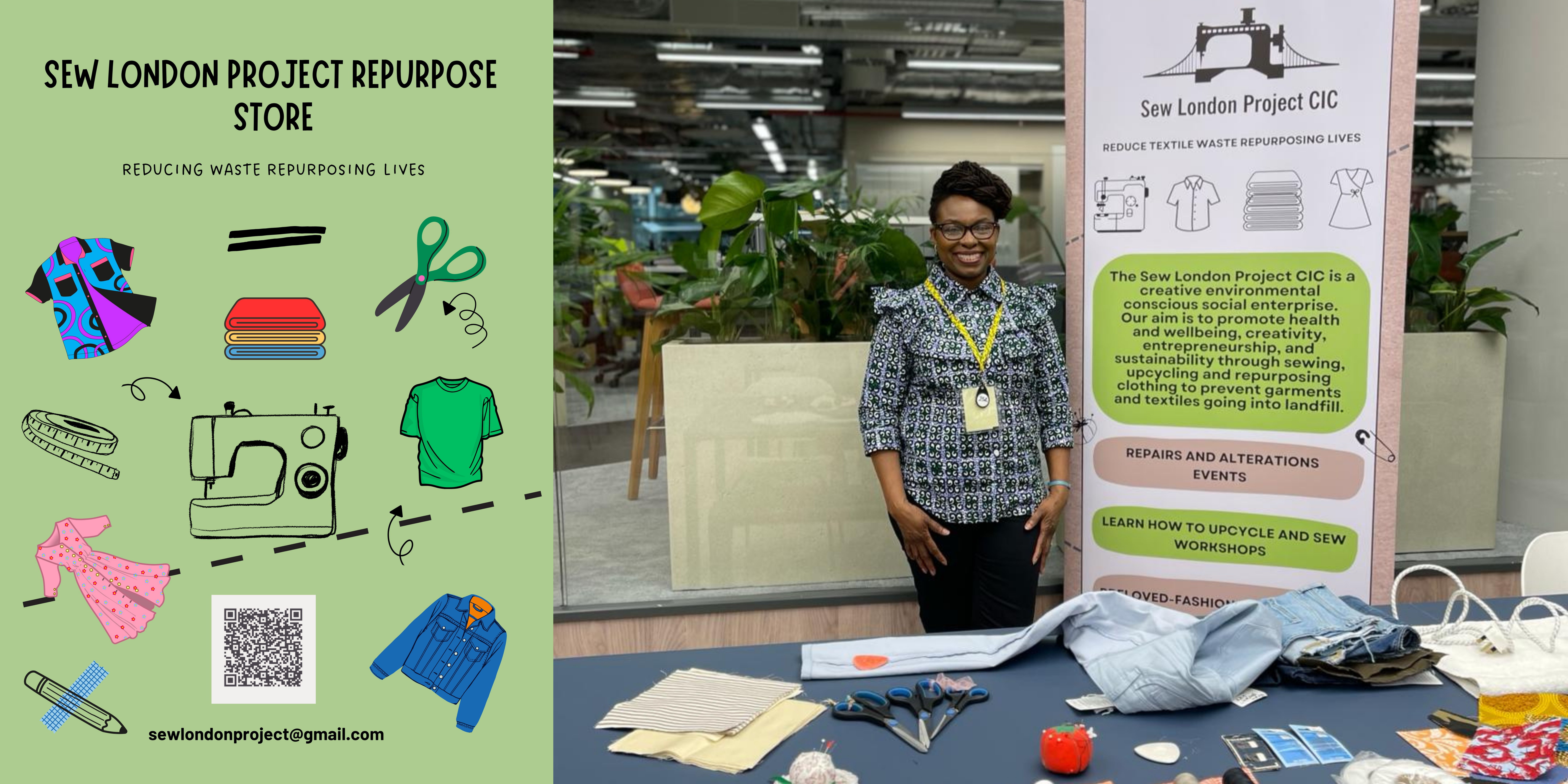About

The Sew London Project CIC actively contributes to a circular economy and waste reduction through its business activities centred on sustainable fashion and community engagement. Here's how:
Circular and Waste-Reducing Activities
- Preloved Clothing and Rentals:
- Sales: Sew London sells a curated selection of preloved clothing, reducing the demand for new clothing production and its associated environmental impacts.
- Repair and Alteration Services:
- Professional repair and alteration services encourage individuals to fix and reuse their clothes instead of discarding them. This practice reduces textile waste and promotes the reuse of existing materials.
- Workshops and Education:
- The project offers hands-on workshops teaching sewing, repair, and alteration skills. These empower individuals to care for and extend the life of their clothing, aligning with sustainable consumption practices.
- Repair Cafés:
- Partnering with local councils, Sew London hosts repair events where community members can learn to mend their garments. This fosters a culture of repair over disposal and reduces landfill contributions.
- Textile Repurposing:
- Collaborating with waste management companies, the project repurposes clean textiles donated by partners, such as John Lewis and Loop Recycle. These textiles are resold or repurposed, and the profits fund further health and wellbeing workshops.
- Community and Social Prescribing:
- The organization supports mental health and wellbeing through social prescribing services, offering workshops to reduce loneliness and improve dexterity and memory. These services help individuals build confidence and connect with their community while engaging in circular practices.
Environmental and Social Impact
Through its integrated approach to repair, reuse, and education, the Sew London Project:
- Reduces textile waste by extending the lifecycle of garments.
- Promotes sustainable consumption and a shift away from fast fashion.
- Builds a skilled and environmentally conscious community.
- Contributes to health and wellbeing through social prescribing initiatives.
This holistic model not only aligns with zero-waste goals but also addresses broader societal challenges, such as loneliness and mental health, while fostering a sustainable future.
Leadership
